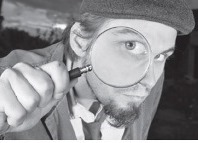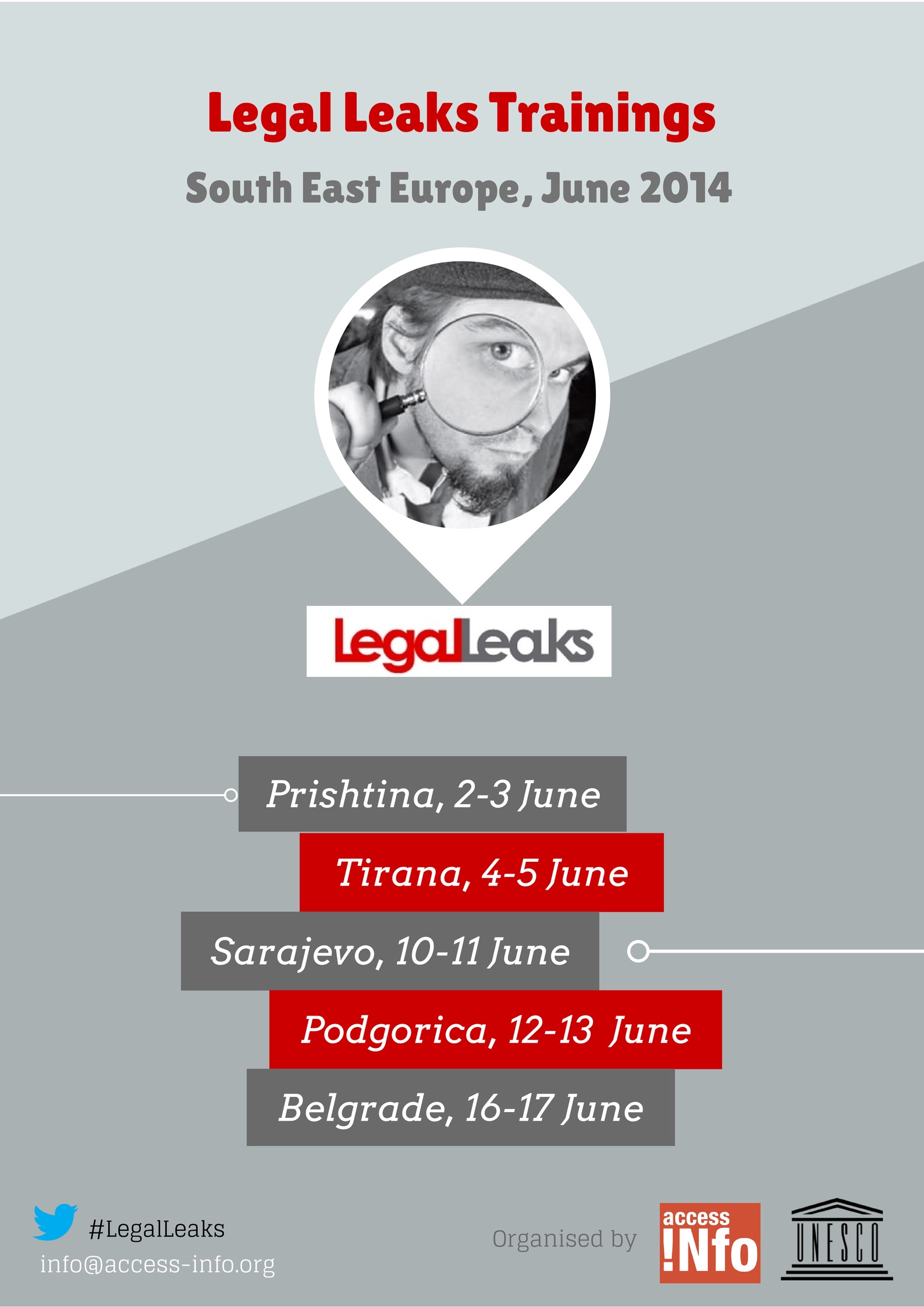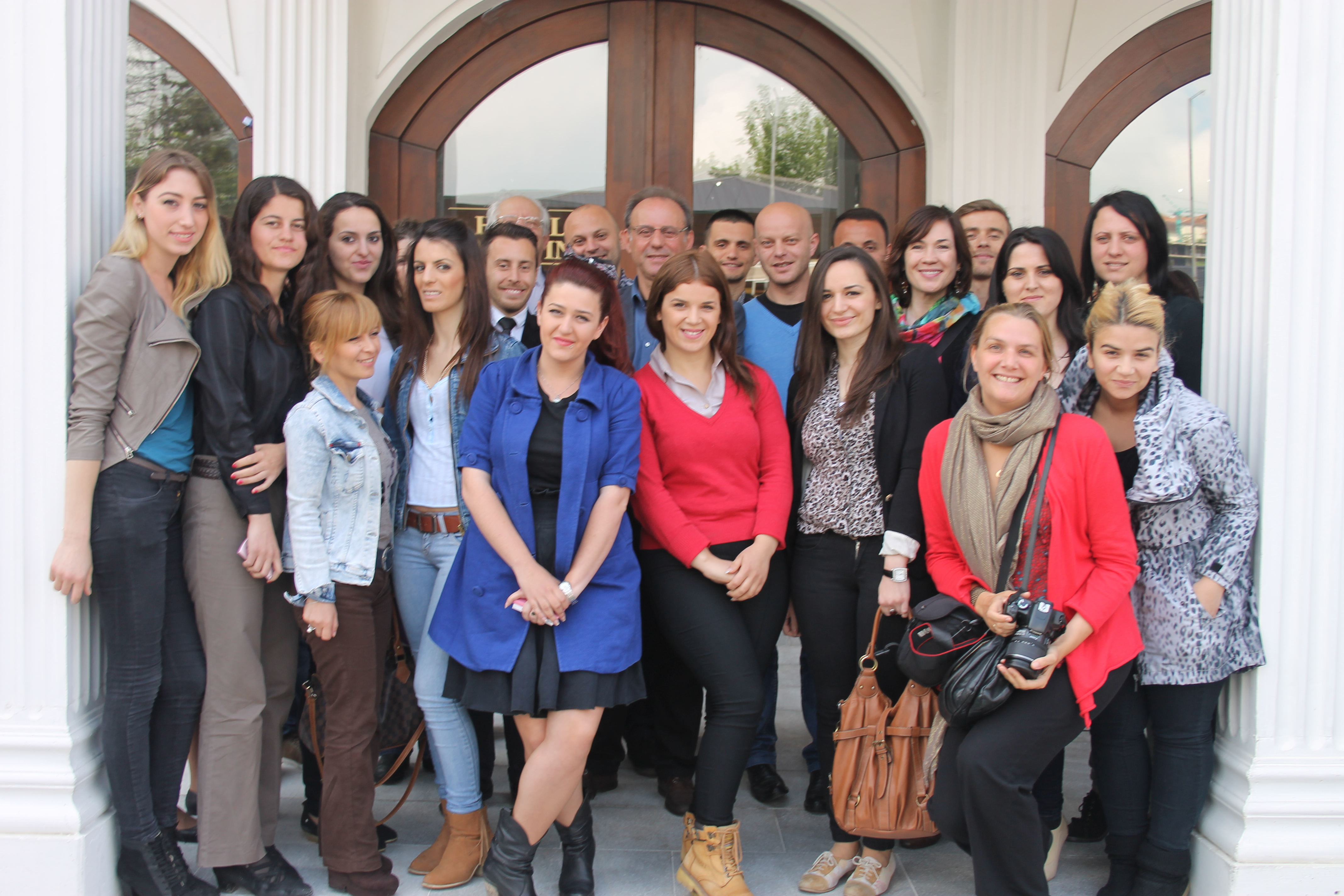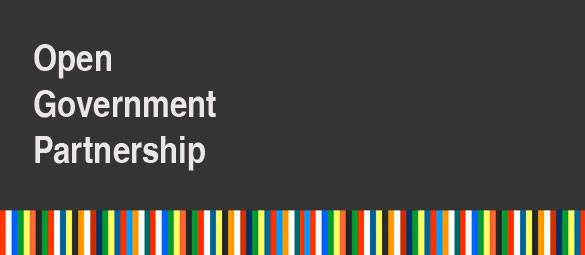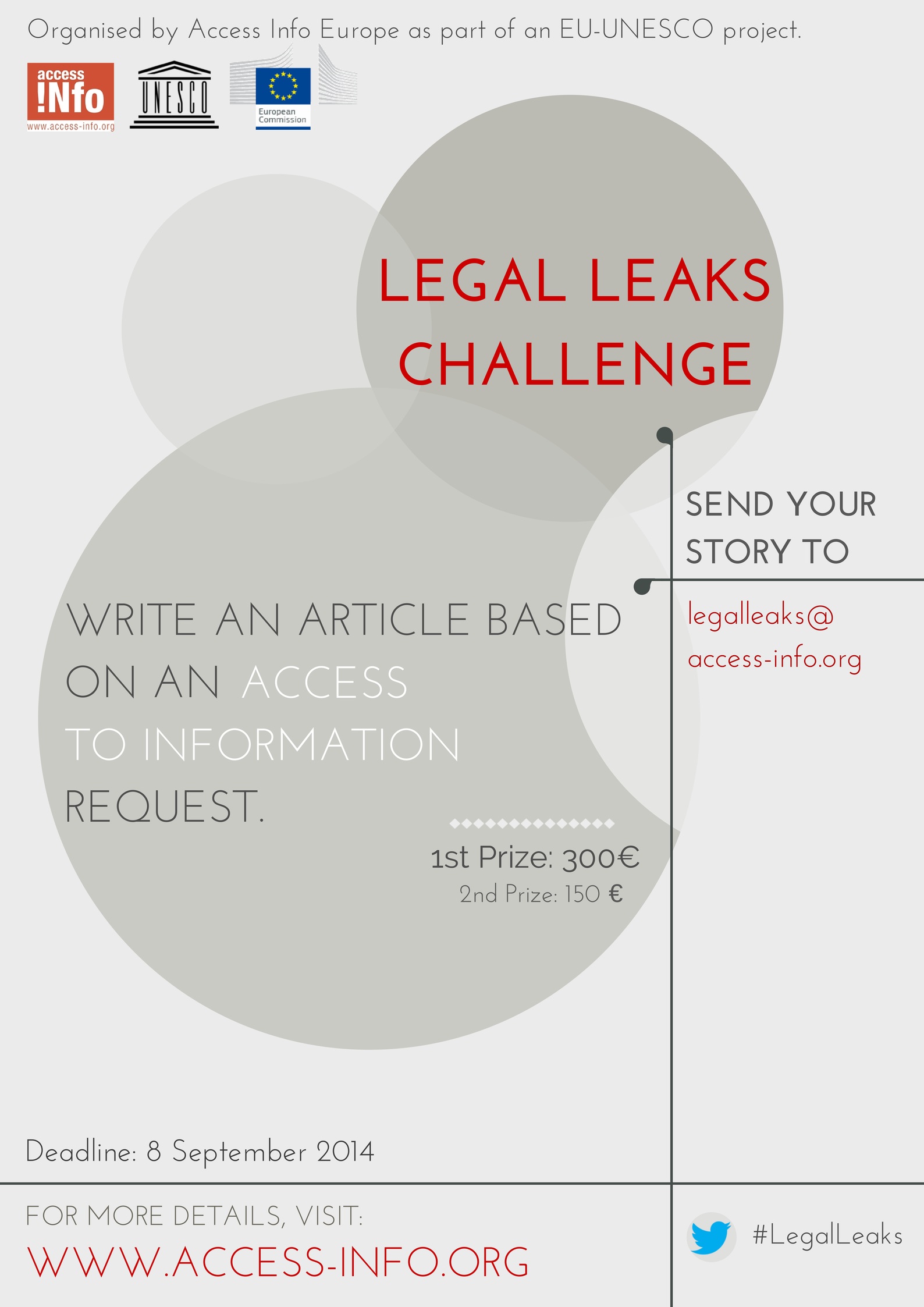Legal Leaks training in Podgorica focuses on media self-regulation and access to information
Helen Darbishire2018-11-13T10:11:47+01:00Podgorica, 14 June 2014 - "There is a weak culture of investigative journalism in Montenegro, with young journalists not being encouraged by editors to use the access to information law," stated participants in last week’s Legal Leaks training in Podgorica. Long timeframes for responding to requests for information and complex appeals procedures were also concerns raised by the participants in the training, which took place on 12 and 13 June 2014 and was organized by UNESCO in cooperation with Access Info Europe, the Media Self-Regulation Council and South East European Network for Professionalization of Media (SEENPM). The event gathered around

